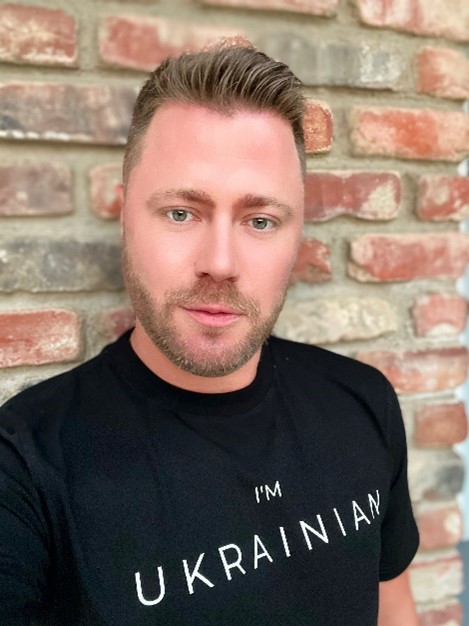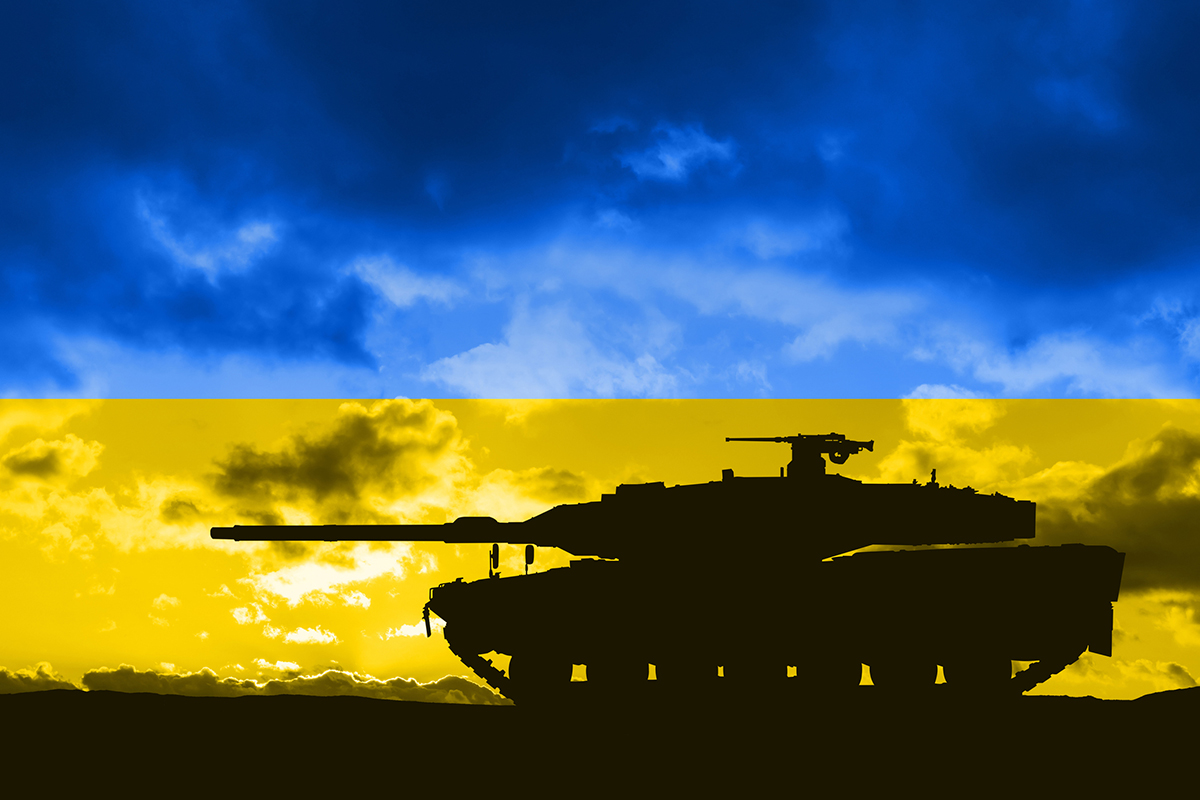

The ongoing conflict in Ukraine, the bloodiest in Europe since WWII, has had catastrophic impacts on civilian life and healthcare systems. Since February 2022, the UN has confirmed 11,000 civilian deaths and 21,000 injuries in Ukraine,[i] primarily due to explosive weapons in government-controlled areas. Ukrainian sources estimate 87,000 civilian casualties in Mariupol alone.[ii] Over 10 million Ukrainians are displaced, and a third of the population within the country faces hunger, exacerbating health crises.[iii]
While the war in Ukraine is a significant political and international issue, its impact on healthcare systems demands urgent attention and action from the global health community. The UN documented 1,336 attacks on Ukraine’s healthcare infrastructure, including the destruction of 84 ambulances and 699 hospitals.[iv] These attacks have killed 198 healthcare workers and injured 137 others.[v] As a result, over 30,000 medical professionals joined the Armed Forces, and thousands more have emigrated or been internally displaced, severely compromising healthcare access for 30% of the Ukrainian population.[vi] These statistics underscore the urgent need for international support for Ukraine's healthcare system, including mobile medical units, import of medical supplies, telemedicine services, and support for healthcare worker training.
Russia's aggression extends beyond healthcare, targeting critical infrastructure like nuclear plants and dams. In October 2022, President Zelensky warned of a potential environmental catastrophe after Russia mined the Kakhovka Dam, comparing its destruction to using weapons of mass destruction.[vii] His fears became reality in June 2023 when retreating Russian forces destroyed the dam, unleashing a devastating environmental crisis. The breach flooded over 620 square kilometers, impacting 80 settlements and causing dozens of deaths, mass evacuations, and water shortages for nearly a million people.[viii] The ecological damage was immense, yet the global response remained muted. This lack of action emboldens Russia, as intelligence reports now confirm plans to blow up the Zaporizhia Nuclear Power Plant.[ix] Recent drone strikes on the plant in April 2024 underscore the constant threat of a nuclear disaster.[x] The international community should prevent a repeat of the Chornobyl disaster in Ukraine, caused by the Russian army's sabotage of the nuclear plant, to avoid catastrophic humanitarian consequences with global impact.
The war in Ukraine has triggered a devastating mental health crisis as well. The World Health Organization estimates that nearly 10 million Ukrainians are at risk of mental health issues, with 3.9 million experiencing moderate to severe symptoms.[xi] The crisis is especially severe for children, with over 1.5 million urgently needing support to cope with stress, anxiety, and other mental health challenges.[xii] These issues are exacerbated by constant attacks that disrupt their access to education. There is a dire need to support mental health interventions to address the psychological effects of war, including trauma-informed care, peer support programs, and psychoeducation for caregivers.
Perhaps the most horrific war crime is Russia's systematic abduction of Ukrainian children. Confirmed reports indicate at least 20,000 unaccompanied children have been forcibly displaced or deported, likely a significant underestimate.[xiii] The Yale School of Public Health report[xiv] identified 43 re-education camps scattered across Russia, some as far as Siberia, holding Ukrainian children taken from orphanages, hospitals, and even families deceived by promises of recreation. Most children never return after their "agreed stay.” Filtration camps in occupied territories further compound this atrocity. Here, families are torn apart as Russia seeks to identify and eliminate anyone deemed disloyal. Ukrainians detained in these 24 camps are subjected to forced labor, torture, and mass executions.[xv]
The health impacts of Russia's war crimes in Ukraine are undeniable, yet the global health policy response has been lackluster. War fatigue, or the exhaustion and diminished attention given to prolonged conflicts, may be partly to blame.[xvi] Syria and Yemen can be examples of war fatigue. Despite initial resource mobilization, prolonged exposure to war horrors has caused compassion fatigue among the global audience, resulting in reduced engagement in relief efforts. The influx of refugees from both areas has led to refugee fatigue in the West, resulting in reduced support for refugee programs despite initial openness. Conflicting reports on casualties and humanitarian conditions in both regions have compounded global skepticism, resulting in information fatigue. Furthermore, donor fatigue has led to declining humanitarian aid despite repeated appeals to address widespread famine and disease outbreaks in both countries.
Russia is exploiting a growing sense of war fatigue to undermine international support for Ukraine. The diminishing media coverage and waning public interest in the conflict suggest a growing compassion fatigue among the global audience. This fatigue is further exacerbated by refugee fatigue in Europe, evident in increased protests against Ukrainian refugees. Simultaneously, Russia is fueling information fatigue through a barrage of misinformation campaigns. Examples include portraying Ukrainians as Nazis and spreading unfounded claims about biolabs. Additionally, narratives questioning the effectiveness of aid to Ukraine due to concerns about corruption are gaining traction, contributing to donor fatigue.
Health professionals, having recently battled COVID-19 fatigue, may find the concept of war fatigue in Ukraine familiar. As the pandemic dragged on, the public grew weary of constant news about death tolls and restrictions, leading to decreased adherence to public health guidelines and increased susceptibility to misinformation. Similarly, war fatigue in Ukraine has opened the door for Russian misinformation to flourish, fostering public skepticism and apathy. Fatigue has been weaponized in both the pandemic and the war to undermine collective action. Just as COVID-19 fatigue hindered the pandemic response, war fatigue now threatens international support for Ukraine.
The global pandemic and the war in Ukraine, though different in nature, share a common vulnerability: the exploitation of fatigue to undermine public trust. Recognizing this parallel, health professionals can apply lessons learned from COVID-19 to counter war fatigue. For example, successful fact-checking initiatives can be replicated in Ukraine by partnering with organizations like StopFake.[xvii] Just as trusted public health voices were elevated during the pandemic, amplifying Ukrainian experiences can counteract Russian propaganda. Furthermore, telehealth advancements can be leveraged to support healthcare in Ukraine. Lastly, acknowledging the psychological toll of both crises, professionals can advocate for mental health support in Ukraine, drawing on their experience with pandemic-related programs.
Author Bio

Alex Dubov, PhD
Dr. Dubov is an Associate Professor for the School of Behavioral Health. His research interests lie in applying scientifically rigorous approaches (i.e. conjoint analysis) to better understand and improve both patient and physician decision making. He is also interested in leveraging emerging technologies as innovative approaches for supporting the implementation of combination (biomedical, behavioral, health system) interventions to prevent HIV infection among groups that are epidemiologically at high-risk for infection and whose prevention needs are complicated by their socially marginalized statuses in their communities.
[i] "Ukraine: Situation Report, 14 May 2024." ReliefWeb. Available from: https://reliefweb.int/report/ukraine/ukraine-situation-report-14-may-2024-enuk.
[ii] Bowen A.S. Russia’s War in Ukraine: Military and Intelligence Aspects: Congressional Research Service; 2022.
[iii] Zaliska, Olha, et al. "Health impacts of the Russian invasion in Ukraine: need for global health action." The Lancet 399.10334 (2022): 1450-1452.
[iv] De, C., A. Gallina, and P. Kovtoniuk. "Destruction and devastation: one year of Russia’s assault on Ukraine’s health care system." Physician for Human rights report (2023).
[v] Khorram-Manesh, Amir, Krzysztof Goniewicz, and Frederick M. Burkle. "Social and healthcare impacts of the Russian-led hybrid war in Ukraine–a conflict with unique global consequences." Disaster medicine and public health preparedness 17 (2023): e432.
[vi] Haque, Ubydul, et al. "The human toll and humanitarian crisis of the Russia-Ukraine war: the first 162 days." BMJ global health 7.9 (2022): e009550.
[vii] Kitowski, Ignacy, Agnieszka Sujak, and Mariusz Drygaś. "The water dimensions of Russian–Ukrainian conflict." Ecohydrology & Hydrobiology 23.3 (2023): 335-345.
[viii] Stone, Richard. "Laid to waste." Science (New York, NY) 383.6678 (2024): 18-23.
[ix] Przybylak, Joanna. "Nuclear power plants in war zones: Lessons learned from the war in Ukraine." Security and Defence Quarterly 46.2 (2024).
[x] Oxford Analytica. "Russia's strikes endanger nuclear plant it controls." Emerald Expert Briefings oxan-es (2023).
[xi] World Health Organization. WHO Country Office in Ukraine, 2022 report. No. WHO/EURO: 2023-7651-47418-69673. World Health Organization. Regional Office for Europe, 2023.
[xii] Martsenkovskyi, Dmytro, et al. "The Ukrainian paediatric mental health system: challenges and opportunities from the Russo–Ukrainian war." The Lancet Psychiatry 9.7 (2022): 533-535.
[xiii] Ioffe, Yulia. "Forcibly Transferring Ukrainian Children to the Russian Federation: A Genocide?." Journal of Genocide Research 25.3-4 (2023): 315-351.
[xiv] Yale School of Public Health Humanitarian Research Lab, ‘Russia's systematic programme for the reeducation and adoption of children from Ukraine’, Conflict Observatory, 2023
[xv] Exeler, Franziska. "Filtration Camps, Past and Present, and Russia’s War Against Ukraine." Journal of Genocide Research 25.3-4 (2023): 426-444.
[xvi] Bond, Ian. "Ukraine fatigue: Bad for Kyiv, bad for the West." (2023).
